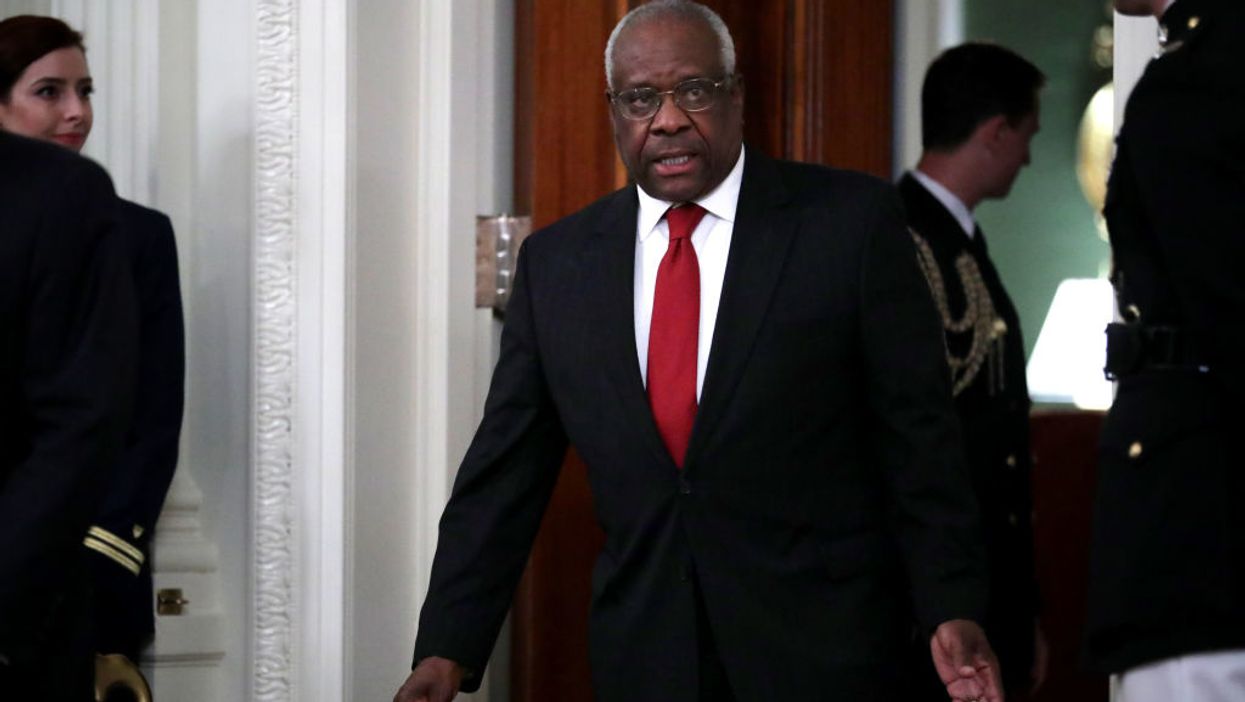
Chip Somodevilla/Getty Images

'When faced with a demonstrably erroneous precedent, my rule is simple: We should not follow it'
The Supreme Court made a significant ruling Monday in Gamble v. United States, upholding the "dual-sovereignty" doctrine that allows criminal cases to be tried separately in both state and federal court without violating the Constitution's prohibition against "double jeopardy."
Although the ruling was crucial for criminal law moving forward, Justice Clarence Thomas potentially laid the framework for an even bigger decision: overturning Roe v. Wade.
Writing in a concurring opinion, Thomas excoriated the religious dedication to stare decisis, the legal doctrine of honoring judicial precedents.
"When faced with a demonstrably erroneous precedent, my rule is simple: We should not follow it," Thomas wrote. "This view of stare decisis follows directly from the Constitution's supremacy over other sources of law — including our own precedents. That the Constitution outranks other sources of law is inherent in its nature."
In fact, Thomas said he believes the court's posture toward stare decisis in recent decades has grown the court's power to levels outside the bounds of the Constitution.
"By applying demonstrably erroneous precedent instead of the relevant law's text — as the Court is particularly prone to do when expanding federal power or crafting new individual rights — the Court exercises 'force' and 'will,' two attributes the People did not give it," Thomas wrote.
So what should the Supreme Court do about "demonstrably erroneous precedent?"
According to Thomas, it has a responsibility to overturn them.
"In my view, if the Court encounters a decision that is demonstrably erroneous — i.e., one that is not a permissible interpretation of the text — the Court should correct the error, regardless of whether other factors support overruling the precedent," he wrote. "A demonstrably incorrect judicial decision...is tantamount to making law, and adhering to it both disregards the supremacy of the Constitution and perpetuates a usurpation of the legislative power."
Legal experts believe Thomas, in his opinion Monday, began building the framework for overturning significant court decisions that ultimately established law, including the right to abortion.
"Thomas says legal questions have objectively correct answers, and judges should find them regardless of whether their colleagues or predecessors found different answers," Jonathan Entin, a law professor at Case Western Reserve University, told Reuters. "Everyone is concerned about this because they're thinking about Roe v. Wade."
Meanwhile, Georgetown law professor Neal Katyal characterized Thomas' opinion as "dangerous."
"Justice Thomas is essentially laying the intellectual groundwork for a massive revisiting of settled precedents," he told Fox News.